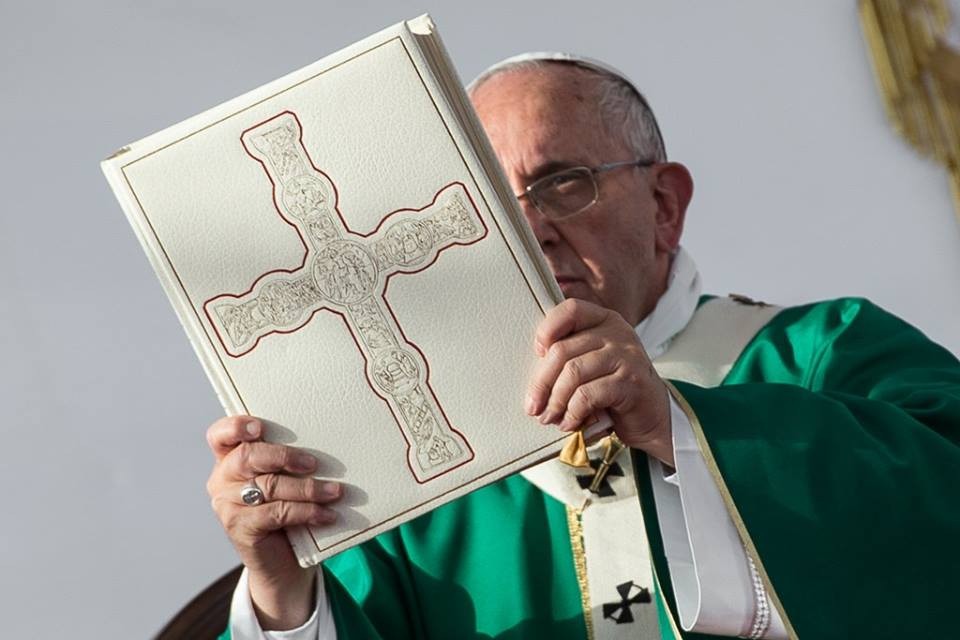- Get rid of the habits of consumerism: give up unnecessary things
- Take a social media vacation
- Get rid of the consumer attitude towards other people and the environment
- Take part in the Eucharist more often, the cure for indifference
- Watch what you say
- Find time for personal prayer
- Plan your finances in the “spirit of the Beatitudes”
- Do “what hurts”
- Corporal and spiritual works of mercy
- Confession
- Get rid of the habits of consumerism: give up unnecessary things
The insatiable consumer, grown inside, demands to buy a new thing. Wait, do I really need this? Or is this what advertising wants from me, or maybe my impulsive purchase is an attempt to close the inner void? Lent is the time to return the true value to things. How about the idea of giving up shopping for 40 days, buying only what you can’t do without? Such an experiment can help you get out of the consumption race and remember that happiness is not in owning things. The money saved can be donated or spent on what really matters.
“Lent is a time for believing, for welcoming God into our lives and allowing him to “make his dwelling” among us (cf. Jn 14:23). Fasting involves being freed from all that weighs us down – like consumerism or an excess of information, whether true or false – in order to open the doors of our hearts to the One who comes to us, poor in all things, yet “full of grace and truth” (Jn 1:14): the Son of God our Saviour”[1].
- Take a social media vacation
It has been proven that social networks are addictive, and excessive interest in them adversely affects our physical and mental health. “Hanging out” on social networks, we are less and less in the moment, devote less time to live communication and reduce walks in the fresh air. Fit girls with perfect bodies, dietitians, bloggers catching a resource condition in Bali, a classmate’s family with 2 children in a new car… All this endless race for success is a direct path to anxiety and depression. But what if you take a chance and fall out of the Instagram algorithms for 40 days?
“The dialogue that God wishes to establish with each of us through the paschal mystery of his Son has nothing to do with empty chatter, like that attributed to the ancient inhabitants of Athens, who “spent their time in nothing except telling or hearing something new” (Acts 17:21). Such chatter, determined by an empty and superficial curiosity, characterizes worldliness in every age; in our own day, it can also result in improper use of the media”[2].
- Get rid of the consumer attitude towards other people and the environment
Every spring, nature experiences its renewal and resurrection, why not help it, for example, by clearing the yard of accumulated debris?
“Once God’s law, the law of love, is forsaken, then the law of the strong over the weak takes over. The sin that lurks in the human heart (cf. Mk 7:20-23) takes the shape of greed and unbridled pursuit of comfort, lack of concern for the good of others and even of oneself. It leads to the exploitation of creation, both persons and the environment, due to that insatiable covetousness which sees every desire as a right and sooner or later destroys all those in its grip”[3].
- Take part in the Eucharist more often, the cure for indifference
Great Lent can be a time of rediscovery of the Sacraments. Remember that the Eucharist has the power to heal.
“The love of God breaks through that fatal withdrawal into ourselves which is indifference. (…) Lent is a favourable time for letting Christ serve us so that we in turn may become more like him. This happens whenever we hear the word of God and receive the sacraments, especially the Eucharist. There we become what we receive: the Body of Christ. In this body there is no room for the indifference which so often seems to possess our hearts. For whoever is of Christ, belongs to one body, and in him we cannot be indifferent to one another. “If one part suffers, all the parts suffer with it; if one part is honoured, all the parts share its joy” (1 Cor 12:26)”[4].
- Watch what you say
We talk unthinkingly, especially in conversations with loved ones. And, unfortunately, words uttered in passing can hurt for life. Why not try in a special way at this time to avoid criticism, complaints in your speech, and speak more words that create?
“In Lent, may we be increasingly concerned with “speaking words of comfort, strength, consolation and encouragement, and not words that demean, sadden, anger or show scorn” (Fratelli Tutti, 223). In order to give hope to others, it is sometimes enough simply to be kind, to be “willing to set everything else aside in order to show interest, to give the gift of a smile, to speak a word of encouragement, to listen amid general indifference” (ibid., 224)”[5].
- Find time for personal prayer
For prayer to become a regular practice, it must be planned. Why not set aside 20 to 30 minutes in your schedule for communication with God? Scientists agree that it takes from 21 to 90 days to form a habit, 40 days is enough time to introduce prayer into your life.
“(…) The experience of mercy is only possible in a “face to face” relationship with the crucified and risen Lord “who loved me and gave himself for me” (Gal 2:20), in a heartfelt dialogue between friends. That is why prayer is so important in Lent. Even more than a duty, prayer is an expression of our need to respond to God’s love which always precedes and sustains us. Christians pray in the knowledge that, although unworthy, we are still loved. Prayer can take any number of different forms, but what truly matters in God’s eyes is that it penetrates deep within us and chips away at our hardness of heart, in order to convert us ever more fully to God and to his will”[6].
- Plan your finances in the “spirit of the Beatitudes”
Planning a personal budget is a way of responsible attitude to the resources given to us by God. Maybe it’s time to clean up your finances, pay off your debts and allocate funds for something good?
“Today too, there is a need to appeal to men and women of good will to share, by almsgiving, their goods with those most in need, as a means of personally participating in the building of a better world. Charitable giving makes us more human, whereas hoarding risks making us less human, imprisoned by our own selfishness. We can and must go even further, and consider the structural aspects of our economic life. (…) As the Church’s magisterium has often repeated, political life represents an eminent form of charity (cf. Pius XI, Address to the Italian Federation of Catholic University Students, 18 December 1927). The same holds true for economic life, which can be approached in the same evangelical spirit, the spirit of the Beatitudes”[7].
- Do “what hurts”
It makes no sense to give up meat if you are a vegan. The intention for Great Lent must require such an effort that exceeds daily efforts. Like the champions. They train regularly, but before the competition they switch to intensive training. Muscles hurt, athletes work on the verge of their capabilities, but before their eyes – the coveted victory. Maybe you have some kind of weakness that throws you to the ground again and again? The Great Lent is a time to conquer new spiritual peaks and try to give up the sinful inclination with the help of God’s grace for at least for 40 days.
“Lent is a fitting time for self-denial; we would do well to ask ourselves what we can give up in order to help and enrich others by our own poverty. Let us not forget that real poverty hurts: no self-denial is real without this dimension of penance. I distrust a charity that costs nothing and does not hurt”[8].
- Corporal and spiritual works of mercy
Another idea is to do one deed of mercy each day of Lent. A new day presents new opportunities, and you will definitely recognize them. Whether it’s giving in to someone in an argument, calling an old friend or relative to see if they’re doing well, or visiting someone in the hospital, the key is to be considerate. And the good has one wonderful property – it returns.
“(…) The Christian people may reflect on the corporal and spiritual works of mercy; this will be a way to reawaken our conscience, too often grown dull in the face of poverty, and to enter more deeply into the heart of the Gospel where the poor have a special experience of God’s mercy” (…). For in the poor, the flesh of Christ “becomes visible in the flesh of the tortured, the crushed, the scourged, the malnourished, and the exiled… to be acknowledged, touched, and cared for by us” (…). It is the unprecedented and scandalous mystery of the extension in time of the suffering of the Innocent Lamb, the burning bush of gratuitous love. Before this love, we can, like Moses, take off our sandals (cf. Ex 3:5), especially when the poor are our brothers or sisters in Christ who are suffering for their faith”[9].
- Confession
The five ecclesiastical commandments contained in the catechism of the Catholic Church prescribe to confess one’s sins at least once a year and to receive the sacrament of the Eucharist at least once a year, at Easter time. This means the ideal Easter preparation experience might look like the following:
1. Before The Great Lent: we go to confession to begin fasting with a contrite heart and in a state of grace.
2. Forty days of fasting: we practice with the help of God’s grace the intention.
3. Easter time (from Ash Wednesday to the feast of the Holy Trinity): be sure to go to Communion. Although, of course, communion, if there is no mortal sin, is worth it as often as possible.
“(…) “Keep your eyes fixed on the outstretched arms of Christ crucified, let yourself be saved over and over again. And when you go to confess your sins, believe firmly in his mercy which frees you of your guilt. Contemplate his blood poured out with such great love, and let yourself be cleansed by it. In this way, you can be reborn ever anew” (…)”[10].
And finally, in order to make a breakthrough in your spiritual life, you do not need to grab onto everything at once. Otherwise, the enthusiasm will quickly end, and the Great Lent will again pass without a trace. It is more useful to choose one or two intentions, each of which should be specific, real and measurable. So that at the end of each day you can ask yourself: “Have I succeeded in fulfilling my intention, have I managed? It is also helpful to discuss your intention with your confessor or spiritual guide. He will help to correct it, if necessary, and support it in execution. And also the promises that we make not only to ourselves, but also to the several people around us, tend to come true more often. And most importantly: remember that the purpose of your efforts and the reward is as great as the fast itself. Ahead is a spiritual transformation and a meeting with the risen Christ.







